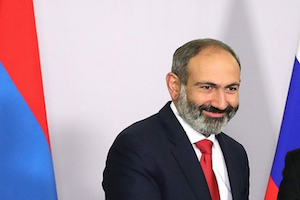Azerbaijan and Armenia Eager to Revive Nagorno-Karabakh Peace Talks
By Emil A. Souleimanov and Huseyn Aliyev
January 23, 2019, the CACI Analyst
Recent weeks have seen an unprecedented series of high-level meetings of Armenian and Azerbaijani representatives on Nagorno-Karabakh, Azerbaijan’s breakaway territory closely linked since the early 1990s to Armenia. Whereas many analysts considered resumed peace talks unlikely after the April 2016 fighting, Armenia’s Velvet Revolution and the replacement of the country’s war-hardened Karabakh elite with a forward-looking and liberal government has provided new stimulus in this regard. As Azerbaijani officials perceive the recent power shift in Armenia as a window of opportunity to advance a peaceful solution to the long-standing conflict, optimism regarding the prospect of a deal appears higher than in many years.
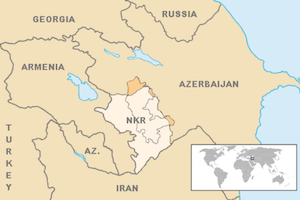
Bolton's Caucasian Tour and Russia's Reaction
By Eduard Abrahamyan
December 17, 2018, the CACI Analyst
On October 24-26, a U.S. State Department delegation headed by National Security Adviser Ambassador John Bolton visited the South Caucasian republics after talks in Moscow. The delegation’s visit to Azerbaijan, Armenia and Georgia was immediately dubbed a reinvigoration of U.S. policy towards the Caucasus and a pragmatic reengagement with the conflicted region. Bolton appeared to refine the evolving U.S. priorities with each country, categorizing them in accordance with political capabilities, shared interests and the roles that Georgia, Azerbaijan and Armenia respectively seek in relations with the West. The visit, however, caused an angry reaction from Moscow, especially given the issues Bolton raised in Yerevan.
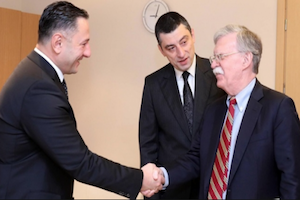
Thinking Big About Caspian Energy
By Stephen Blank
November 29, 2018, the CACI Analyst
The signing of the Caspian convention in August 2018 has opened up exciting new possibilities for getting Central Asian oil and gas to European and global markets. The long-desired Southern Gas Corridor (SGC) from both shores of the Caspian has thus become a possibility. By thinking big, we can use Caspian gas for beneficial economic and political purposes. Whatever route Caspian energy takes to Europe, it must traverse the Caucasus and can be of substantial value in transforming the Eurasian geopolitical scene and agenda. Specifically, those parties who have the most to gain form resolving the Nagorno-Karabakh conflict can now devise a peace program that incorporates the use of energy to help foster an enduring peace between Armenia and Azerbaijan, reduce Russia’s ability to manipulate this conflict, and at the same time enrich them both as well as European consumers.
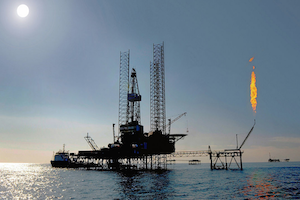
Armenia's New Government Faces Resistance
By Armen Grigoryan
November 7, 2018, the CACI Analyst
An alliance formed around Prime Minister Nikol Pashinyan’s Civic Contract party won an overwhelming majority in the Yerevan city council elections, despite an ongoing smear campaign by media controlled by the Republican Party of Armenia (RPA), former president Robert Kocharyan, and their proxies. The election results substantiated Pashinyan’s determination to dissolve the National Assembly and to hold snap parliamentary elections in December. Despite the confrontational campaign by the RPA and its allies, and their attempts to discredit the government and obstruct investigations into the actions of several former officials, Pashinyan’s high popular support seems enough to advance his political agenda.
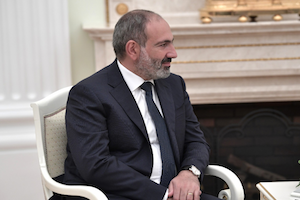
Is Armenia's Foreign Policy Changing?
By Natalia Konarzewska
September 25, 2018, the CACI Analyst
August 17 marked the first hundred days in office for Nikol Pashinyan’s government in Armenia, which assumed office after the mass social protests erupting in April and May this year. The leaders of the protest movement underlined that they campaigned for domestic reform, yet the ensuing transition of power followed by a crackdown on corruption and a legal purge among the Armenian political elite has already reverberated in Armenia-Russia relations. Moreover, the new government’s stiff approach towards resolution of the Nagorno-Karabakh conflict has brought renewed tension in its relations with Azerbaijan.
